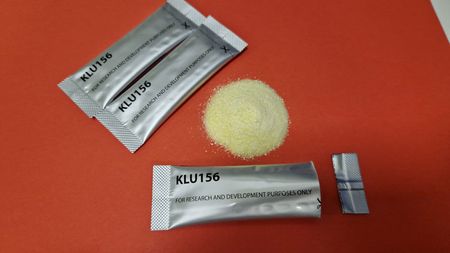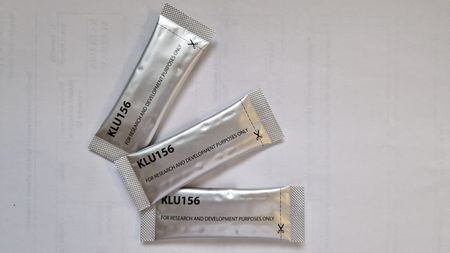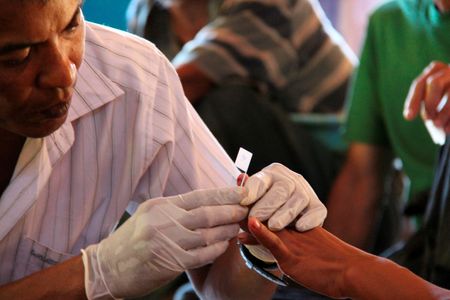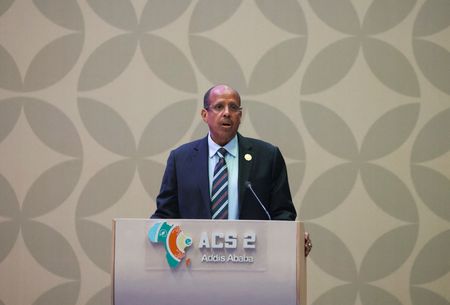By Jennifer Rigby
LONDON (Reuters) -A new antimalarial drug developed by Novartis is as effective as existing treatments and could help tackle rising drug resistance, the company said on Wednesday as it presented final-stage trial results.
The drug, ganaplacide/lumefantrine or GanLum, was developed by the company and the Medicines for Malaria Venture, a non-profit.
It was more than 97% effective at treating malaria in a phase III trial among 1,688 adults and children across 34 sites in 12 African countries, Novartis said.
Malaria still kills more than 600,000 people annually, most of them children under 5 in sub-Saharan Africa.
RISING RESISTANCE
Existing treatments still work against the mosquito-borne disease – with an effectiveness of around 94% – but there is increasing concern about rising resistance to one of the key drugs used, artemisinin.
Artemisinin resistance was first seen in Cambodia around twenty years ago, before spreading around the Mekong region. It is now increasingly a problem in African countries, with confirmed partial resistance in Eritrea, Rwanda, Uganda and Tanzania.
“Drug resistance is a growing threat to Africa, so new treatment options can’t come a moment too soon,” said Abdoulaye Djimdé, the trial lead and professor of parasitology and mycology at the University of Science, Techniques and Technologies of Bamako, Mali.
If resistance becomes more widespread, the fear is that the existing therapies – known as artemisinin combination therapies – will stop working.
George Jagoe, head of access at MMV, likened the new drug to having a fire extinguisher ready for a coming blaze, rather than being as unprepared as the world was when previous malaria drugs started to fail.
Ganaplacide is a new type of drug and represents the first major advance in decades, Novartis and an external scientist said.
“Finally new compounds are being proven effective for the treatment of malaria,” Dr Alena Pance, senior genetics lecturer at the University of Hertfordshire, said.
GanLum works differently to previous antimalarials, and unlike many of those treatments also blocks transmission as it acts on the malaria parasite at the point where it can spread back from an infected human to the mosquito that bites them.
Novartis will now apply for regulatory approval, the company said, and expects to see GanLum available in countries within the next year to 18 months, on a non-profit basis.
(Reporting by Jennifer Rigby, Editing by Nick Zieminski)













